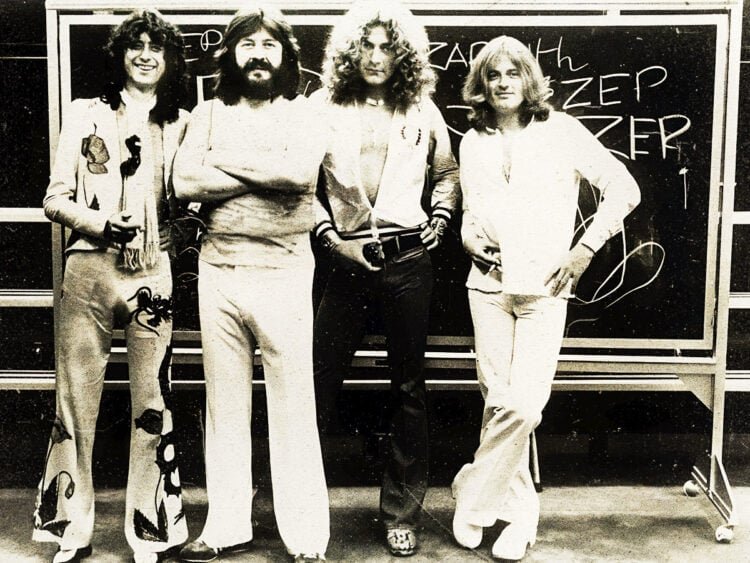Originality, in its truest form, is a near impossibility in the modern age of art and music.
The cultural landscape consists of countless artists building upon what has come before, adding their unique and modern touch to a preexisting sound, image, or story.
While this practice is often wrongly confused with plagiarism, it has led to the creation of some of music’s most beloved efforts, including Led Zeppelin’s hard rock masterpiece, ‘Black Dog’.
It was back in 1968, at the peak of counterculture hippiedom, that the infectiously abrasive sounds of Led Zeppelin first emerged onto the airwaves. Audiences were used to hearing far-out psychedelic sounds by that point, but nothing could have prepared them for the vast, expansive, and utterly awe-inspiring riffs of Jimmy Page and the gang.
Led Zeppelin sounded totally unlike anything that had arrived on the rock scene before, and, despite numerous pretenders to their throne, the trailblazing genius of their sound has never quite been replicated since.
That is not to say, however, that the sound of Led Zeppelin just appeared out of the ether. Each member owed a great deal of their inspiration to the world of American blues music—the root of all true rock and roll. Throughout the 1960s, countless artists earned a name for themselves by performing their take on the age-old sounds of blues, with the likes of The Rolling Stones, The Small Faces, and Jimmy Page’s previous outfit, The Yardbirds, being just a handful of notable examples.
For this blues-based inspiration, Page has fielded numerous plagiarism claims over the years, some more credible than others. However, he was not the only member of the band to draw from the sounds of the blues. In fact, one of the group’s most iconic offerings, ‘Black Dog’, is rooted in bassist John Paul Jones’ adoration of American blues music, even if the final product is unwavering in its hard rock leanings.
It was Jones who came up with the riff on ‘Black Dog’, which acts as the response to Robert Plant’s opening a cappella vocals. Reportedly, he first scrawled the riff on the back of a train ticket, unaware of the fact that it would soon become one of the most instantly recognisable ones in all of rock history. Seemingly, though, the bassist had a head full of blues music on that fateful day on the train, and he found particular inspiration in the work of Muddy Waters.
Decades later, during a 2000 interview with Exposé, the bassist delved into the topic of inspiration. Jones revealed that he could find songwriting inspiration in “pretty much everything”, from nature to literature, “and other forms of music as well”.
He shared, “It will just set me off in another direction. I like how that happens. Not a lick or someone else’s song necessarily; oftentimes I like the way someone else has answered their questions.”
“Like when I wrote ‘Black Dog’,” he recalled, “there was a track on Muddy Waters’ album, Electric Mud. ‘That’s a really nice construction,’ I thought. In that way, I was inspired by that, but ‘Black Dog’ sounds nothing like it.” Waters’ work has inspired a myriad of rock and rollers over the years, and it was his 1956 track ‘Smokestack Lightning’ that appears to have laid the foundation for ‘Black Dog’, although it actually appeared on The Howlin’ Wolf Album, rather than Electric Mud.
Despite the inspiration provided by that classic blues track, it is pretty unlikely that any untrained ear would connect the two very disparate songs without already knowing this slice of rock trivia. John Paul Jones did not lift his iconic riff directly from Muddy Waters, but rather used the blues classic as a core piece of inspiration from which to build. It just so happens that the result was one of the greatest rock songs ever recorded.
